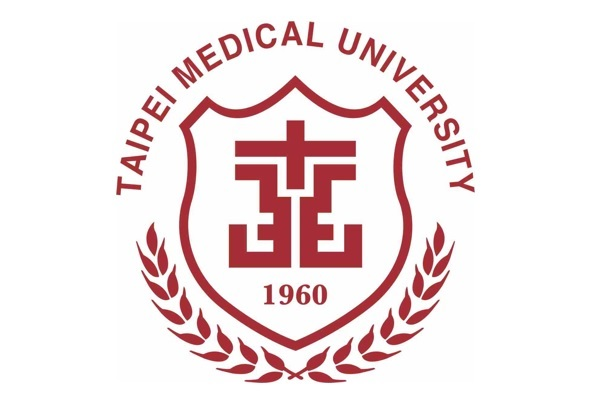Molecular Virology & Oncolytics Laboratory
Research Field
Dr. Liang-Tzung Lin received his BSc from McGill University, his MSc from the University of Toronto, and his PhD from Dalhousie University. He completed his postdoctoral training at the Izaak Walton Killam (IWK) Health Centre/Canadian Center for Vaccinology (CCfV) in Halifax, Canada. He is currently a Professor in the Dept. of Microbiology & Immunology, the Head of Molecular Virology & Oncolytics Laboratory, and the Vice Dean of Office of Global Engagement at Taipei Medical University, Taiwan. He is also the Chair of the International Drug Discovery Consortium, a member of the Canadian Network on Hepatitis C (CanHepC), and an adjunct faculty at Dalhousie University, Canada.
Academic Experience
- Chair, International Drug Discovery Consortium
- Committee Member/Co-Investigator/Mentor, Canadian Network on Hepatitis C (CanHepC), Canada
- Adjunct Professor, Department of Microbiology & Immunology, Dalhousie University, Canada
- Professor, Department of Microbiology and Immunology, School of Medicine, Taipei Medical University
- Adjunct Professor, International Ph.D. Program in Medicine, College of Medicine, Taipei Medical University
- Adjunct Professor, Ph.D. Program in Global Health and Health Security, College of Public Health, Taipei Medical University, Taiwan
- Adjunct Professor, Master Program in Global Health and Development, College of Public Health, Taipei Medical University
- 2016-2019 Associate Professor, Department of Microbiology and Immunology, School of Medicine, Taipei Medical University
- 2012-2016 Assistant Professor, Department of Microbiology and Immunology, School of Medicine, Taipei Medical University
- 2011-2012 Postdoc, IWK Health Center/Canadian Center for Vaccinology, Canada
Administrative Experience
- Vice Dean, Office of Global Engagement, Taipei Medical University
- Director of International Foundation Program, Office of Global Engagement, Taipei Medical University
- 2020-2024 Chief of International Research, Office of Global Engagement, Taipei Medical University
- 2017-2020 Chief of Global Partnerships, Office of Global Engagement, Taipei Medical University
The themes we are interested in include modelling viral infections, deciphering virus-host interactions, developing antivirals and strategies to preclude viral entry, and engineering and exploring oncolytic viral vectors as an anti-cancer modality.
Together, these research topics aim to promote understanding of host-pathogen interactions, develop antiviral strategies, and design virus-based precision cancer medicine.
Emerging Viral Infectious Diseases (EVID)
The dynamics of climate change, globalization, urbanization and viral evolution can lead to the occurrence of outbreaks and the geographical expansion of viral diseases. This is especially true for vector-borne viruses (such as the dengue and Zika viruses) and those that require close contact (such as the Ebola, enteroviruses, and influenza viruses). In addition, blood-borne viruses that are without preventive vaccines, including HIV and the hepatitis C virus (HCV), remain a problem in several parts of the world, especially regions where resources are limited.
Oncolytic Viro-Immunotherapy (OVI)
Certain viral infections can lead to the eradication of tumours. This presents the exciting possibility of employing nanoscale viral particles as oncolytic agents. Indeed, thanks to improvements in knowledge regarding viruses and cancers and advances in molecular techniques, it is now possible to engineer viruses with a propensity to selectively target and replicate in cancer cells, thereby destroying them and stimulating the host immune response. This area of ‘oncolytic viro-immunotherapy’ is becoming an increasingly important field of interest, especially in employing biologicals to treat cancer.
- 2021-2024 Elsevier World’s Top 2% Scientists
- 2020 Taipei Medical University Outstanding Mentorship Award
- 2019 Taipei Medical University Outstanding Teaching Award
- 2018 Taipei Medical University Distinguished Faculty Award
- 2017 Taipei Medical University Young Investigator Award
- 2017 2nd 505(b)(2)-[Drug Repurposing-New Formulation]-Innovation Award
- 2016 Taipei Medical University Junior Research Investigators Award
- 2011 McCarlie Postdoctoral Award
- 2011 IWK Postdoctoral Award
- 2006-2011 Ph.D., Microbiology & Immunology, Dalhousie University, Canada
- 2004-2006 M.S., Medical Biophysics, University of Toronto, Canada
- 2000-2004 B.S., Microbiology & Immunology, McGill University, Canada
2 Vacancies
Job Description
The aim of this program is to provide students with interests in virology and immunology with the opportunity to study: (1) emerging/re-emerging viral diseases and (2) oncolytic viro-immunotherapy.
Emerging and re-emerging viral infections represent a global threat to public health. Understanding the pathogenesis and development of vaccines and antivirals are especially important for viral infections that are without effective/FDA-approved immunization or specific treatments. Students working on this project will get to explore the mechanism of pathogenesis of such viral diseases, examine the underlying interplay between host factors and the viral infection, and further establish models for antiviral screening, vaccine development, and additional public health-related applications.
Oncolytic viro-immunotherapy using viruses that preferentially target and kill cancer cells represents a novel therapy for the management of cancers. Significant challenges that remain include enhancing cancer cell-targeting specificity and increasing tumor-killing efficiency. Students in this project will learn about the principles and development of oncolytic viro-immunotherapy, and explore strategies in enhancing its efficacy and the role of immune response.
The students will undergo training in laboratory safety and experimental procedures such as basic molecular cell biology and virology techniques, viral modeling, antiviral testing, and oncolytic vector development/characterization. Additional training in data analysis and laboratory presentation skills are also included.
Lab Website: https://mvol.tmu.edu.tw/
Preferred Intern Education Level
BSc / MSc / PhD in Life Science, preferably Microbiology & Immunology
Skill sets or Qualities
- Molecular biology skills
- Cell culture
- Virus culture
